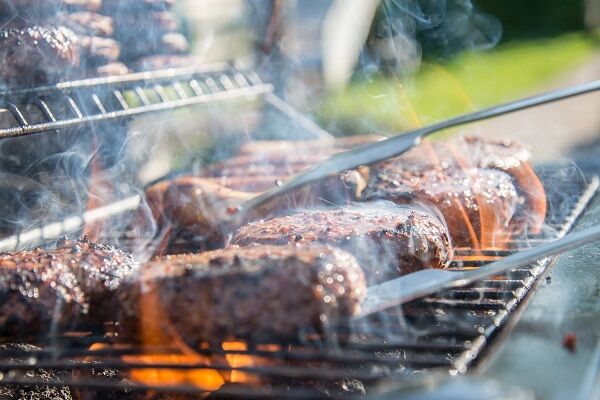When we think of barbecue there is almost an instantaneous reaction that people will have. It’s the unmistakable flavor that comes from grilling over the BBQ pit. Whether it’s from a traditional Webber grill or the standard rectangular pit grills. The allure of smoky flavor makes any steak, burger, or slow-cooked ribs all capture that amazing bouquet flavor profile. But is this by accident, or is there something else happening here?
You might be surprised to know that in the days before refrigeration was possible, ancient cultures needed to dry their meats. This was a simple and reliable process where meat was sliced, seasoned with salt, and hung-up in a wooden shelter. It was also heated and used wood smoke to help cure the meat. This is evident in the ancient Eskimo tribes all the way through the early Viking era. However, it was also a method that was used by the Taino Indians who lived throughout the Caribbean Islands.
They had devised a wooden stick structure that was raised off the ground about 1 meter tall. It was lined with sticks and fresh seafood or fish was slow-cooked from underneath the structure. The wood fire added smoke that added secondary flavors which helped their seafood have a rich smoky aroma and taste. Because it was cooked slowly, their food was tender and not overcooked. Spanish explorers who visited the Caribbean learned of this cooking method from the Taino Indians who called it Barbacoa.
It wasn’t until 1526 that this new word was added into a glossary of terms that were brought back from the new world. While the Indians were calling their cooking structure a Barbacoa, it later evolved through misinterpretation as the food prepared in a Barbacoa. It wasn’t until later when English explorers had encountered the cooking traditions of the West-Indies in the 1750s. In this case, entire hogs were split nearly in half and laid on a supporting rack. it was positioned over hot coals that had reached a red glowing hue.
The hog was roasted over these coals until it was fully-cooked. It was also an all-day event which involved many locals gathering together. As the English people observed, they modified the word Barbacoa into a friendlier-sounding word that could be understood in English. It was soon spoken to others that the word barbecue was a social grilling activity. Over the next two centuries the word barbecue, Bar-Be-Cue, and BBQ have all become synonymous names describing the same activity.
With that being said, any kind of meat or food that’s cooked over hot wood or coals is especially barbecue. Many of the earliest accounts of where BBQ became popular in early America came from Texas lore. The popular story often included a rancher by the name of Barnaby Quinn or Bernard Quayle who enjoyed cooking outdoors. Their meat was cooked over a metal rack often above smoky mesquite and coal. Of course, it has to be mentioned that his ranch had many animals that were all branded with the initials B.Q., therefore the ranch became further known as the Bar B. Q.
Although the history of the BBQ was popular as far back as George Washington’s timeline, it was not an exclusively an American tradition. It wasn’t until the 1950s that the concept of American BBQ took-off. Much like the early days of NASA, the popularity of BBQ grew into a social activity for young baby boomers. It wasn’t uncommon that BBQs were also a big part of the day whenever a NASA rocket launch took place. This was especially so for those who lived in Florida or Texas. Two states where BBQ is a welcome meal on anyone’s plate.
By the end of the 1950s, the trend for BBQ was quickly labeled a Man’s Job’. By 1959, it became an opportunity for one aluminum foil company to turn BBQ into an industry. The Kaiser Foil Cookoff Challenge was held in Hawaii and targeted real BBQ Men to win the best tasting BBQ prize title. It was a major barbecue contest that most of us have never heard about. However, it did serve as a template for what would become the better-known BBQ cooking competition. These annual contests draw huge crowds and offer thousands of dollars in prize money.
If you’re curious in learning more about these amazing cookoffs and competitions, you can find out more from https://squirrelcookoff.com/ They feature stories and stats about BBQ and cooking competitions that are happening around the US.

